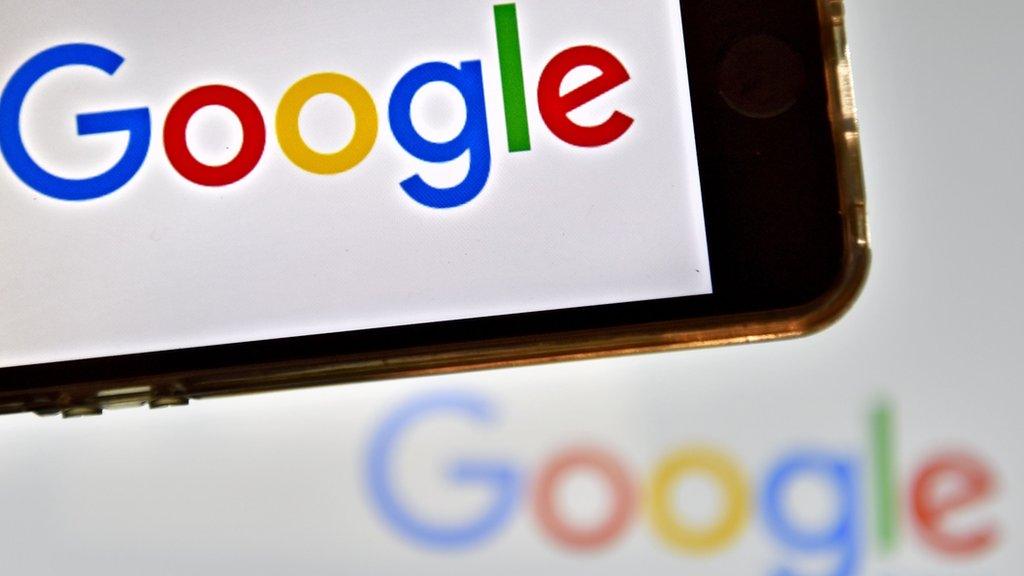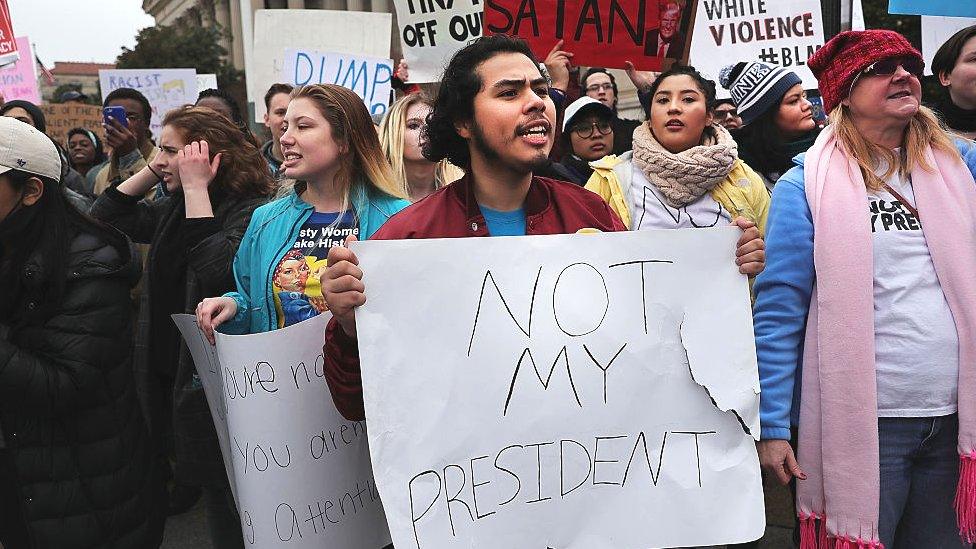Google and Apple report jump in requests for user data
- Published

Google's more recent transparency report shows the US government is requesting information on more users
US government requests to Google for individuals' data reached a six-year high in the first half of 2017, the company says.
A report published last week, external said the country had sought details about 48,902 accounts - 24% more than over the last six months of 2016.
Apple reported a 62% jump in the number of user account requests from the US over the same period - 6,407 in total.
Campaign group Privacy International predicted further "dramatic increases".
"What's remarkable is that in the last year or two, the US has been so activist in the idea... that it doesn't have the data that it needs," said executive director Gus Hosein.
"Now we're seeing that it is increasing demands for data. Is it just taking advantage of that narrative?"
The US outpaced the global rise in user accounts demanded from Google, which was 14% for the period.
South Korea, Spain and Brazil were some of the other countries to experience a steeper jump than average.
But in the UK, the number of users included in account requests decreased by 7%, to its lowest number since 2014.
In its report, external, Apple said that account requests sometimes included iCloud content such as stored photos, emails, iOS device backups, contacts and calendars.
It provided content information for 32% of the user requests the US filed.
The iPhone-maker said that increases in user-account requests were predominantly due to phishing investigations.
The report also includes a separate breakdown of the number of national security orders received from the US government.
The range it reported for the beginning of this year shows more than a two-fold increase from the previous reporting period.

Legal processes for requesting user account data
Google broke down its data by the legal process required to request user data, including:
"tap and trace" orders, or pen register requests, targeted 49% more users. These can be used to collect data on a person's communication, including dialled phone numbers and IP addresses, in real-time
emergency requests targeted 35% more users. These can be made without going through legal procedures to obtain information that may be used to prevent death or serious physical harm to an individual
search warrants targeted 31% more users. Agencies requesting search warrants must show "probable cause" to believe that information related to a crime can be found in the specific area to be searched
subpoenas targeted 18% more users, and are the most frequent type of request issued by the US. These can be used by a government agency to obtain information about IP addresses and names associated with Google accounts

Google warned that the number of specified users might be over-inclusive, as an account named in multiple types of requests would be counted multiple times in its report.
Mr Hosein said that policy changes in the US probably meant more requests to technology companies would be made in the future.
"From October onwards, people applying to visit the US will have to hand over their social media accounts and passwords," he told the BBC.
"If the numbers worked out now, just give it a couple more years under the Trump presidency."
- Published23 August 2017

- Published9 June 2017
